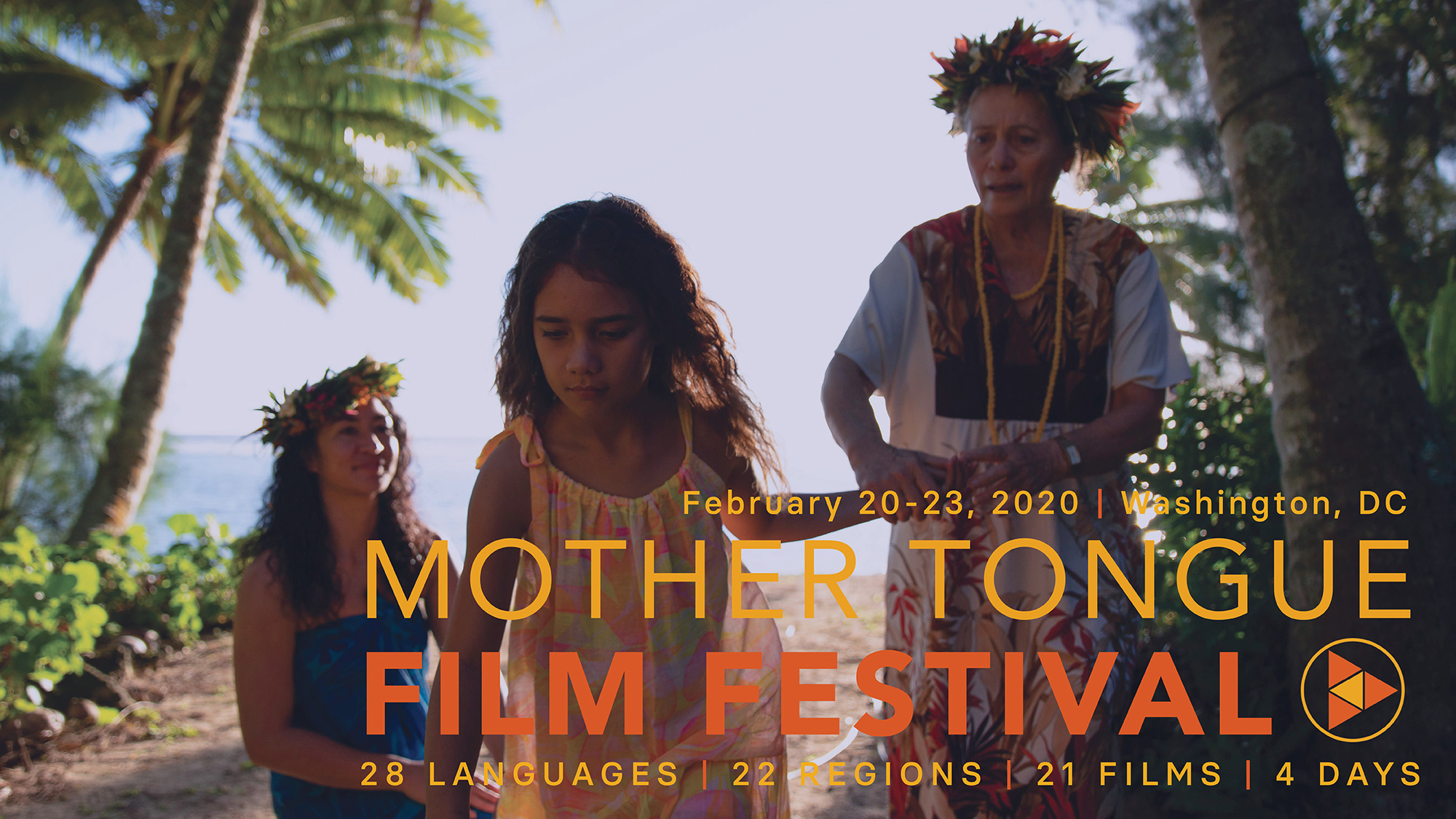
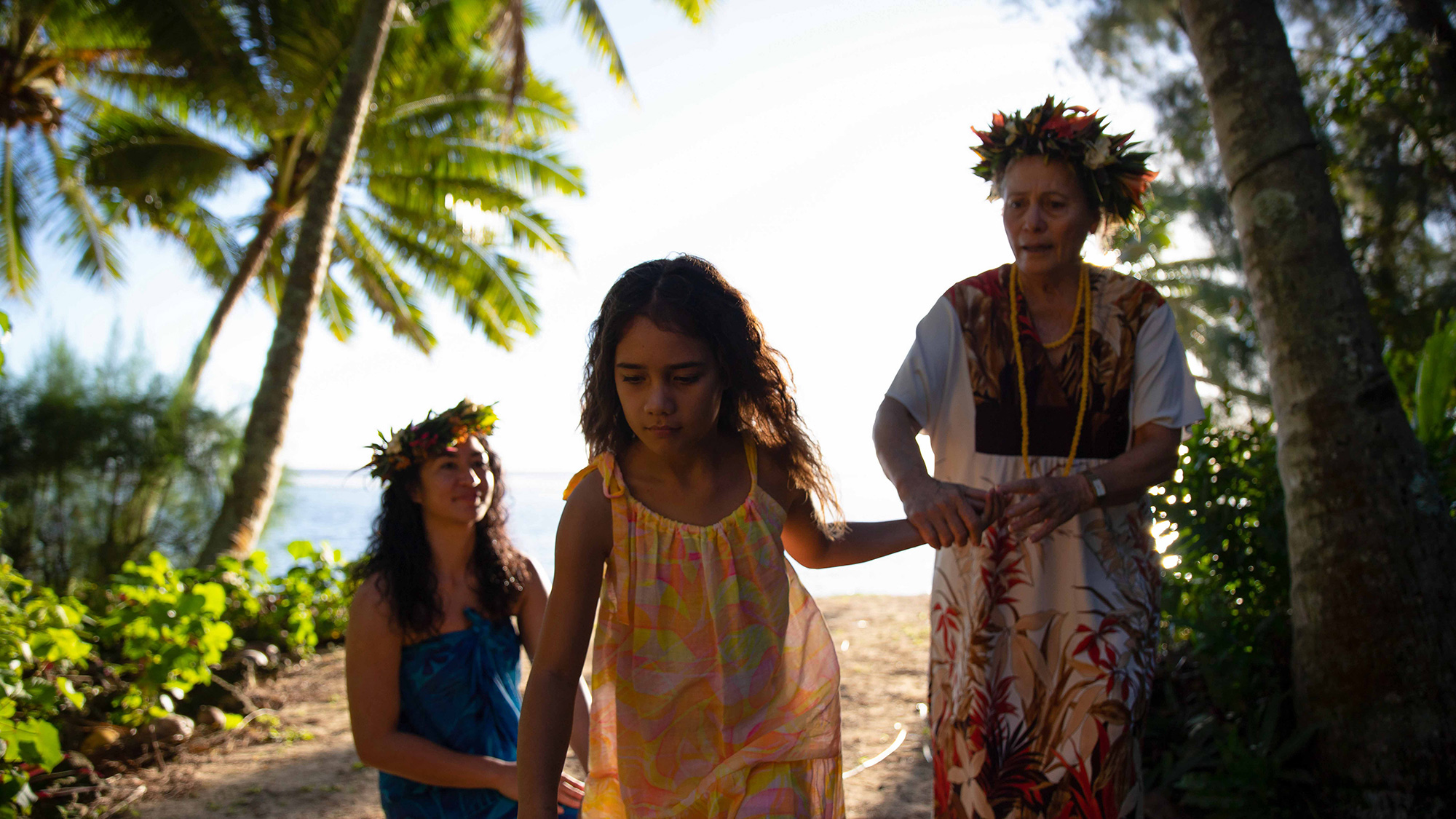
Films marked with below are available to stream in full on our website.
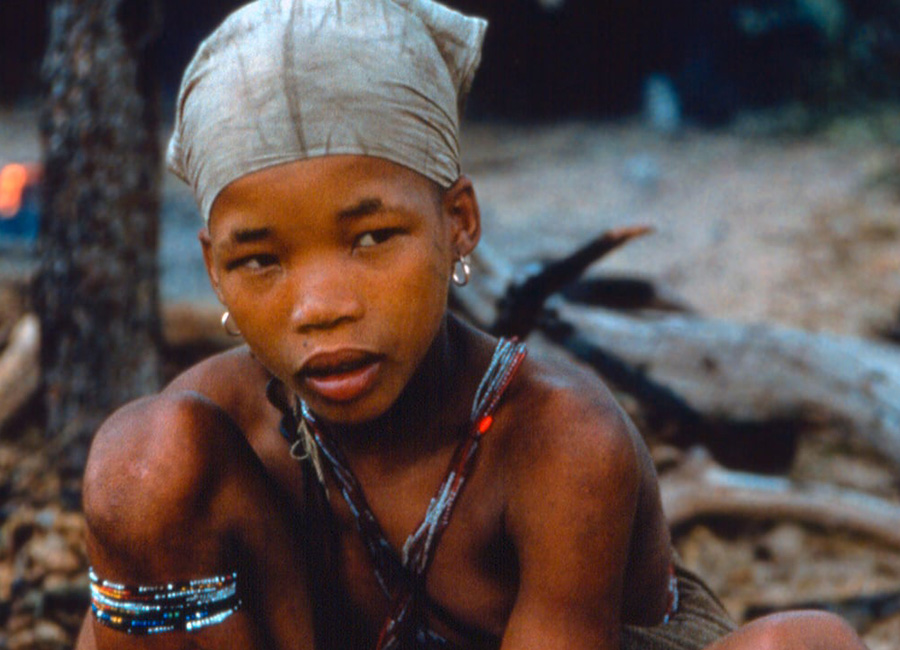
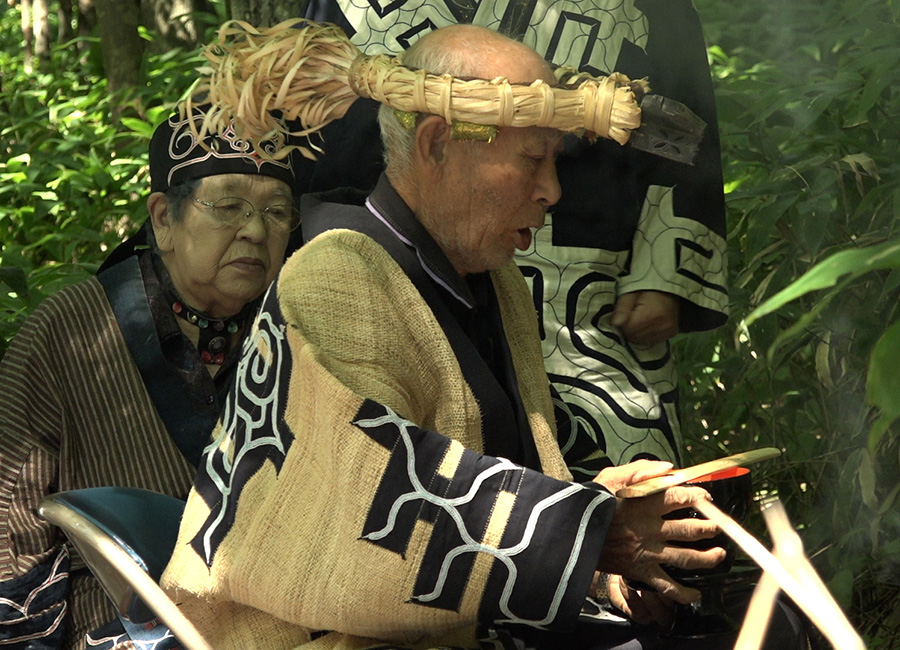
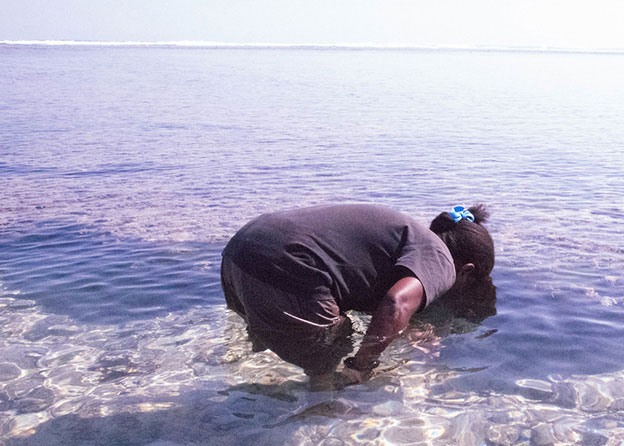
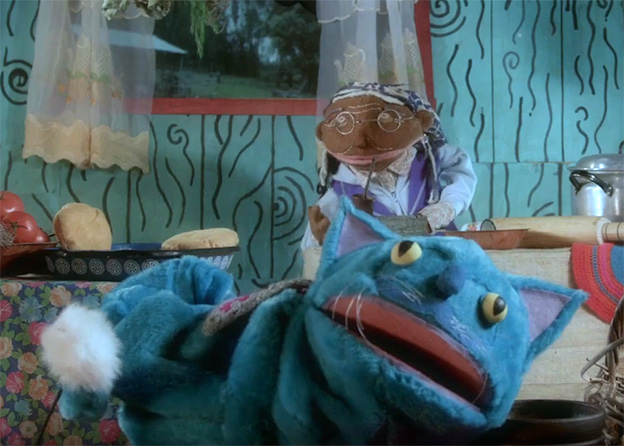
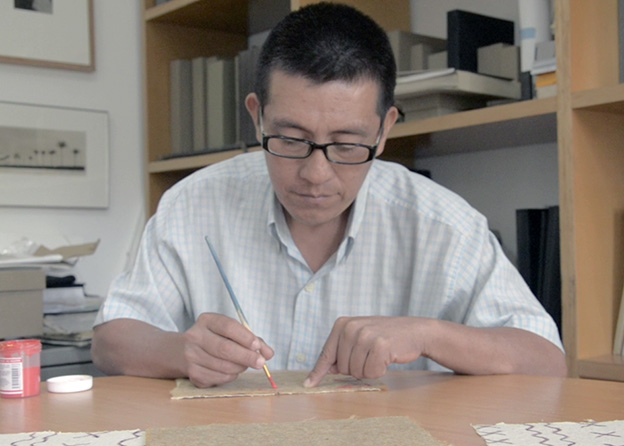
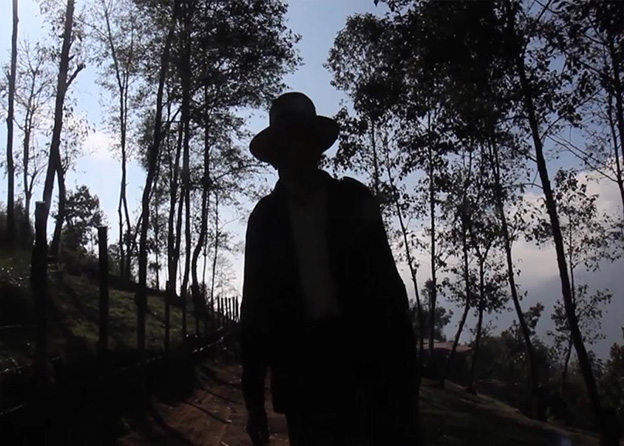
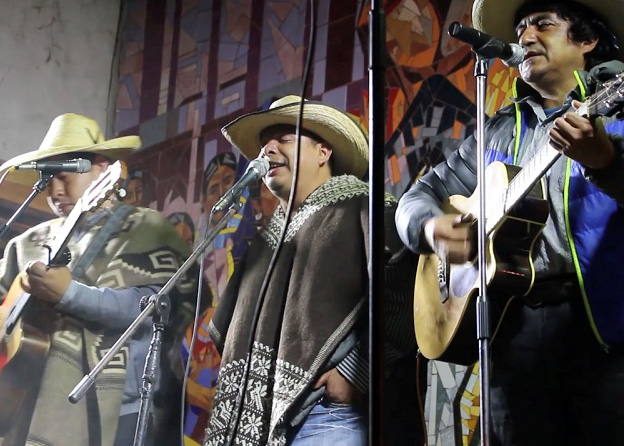
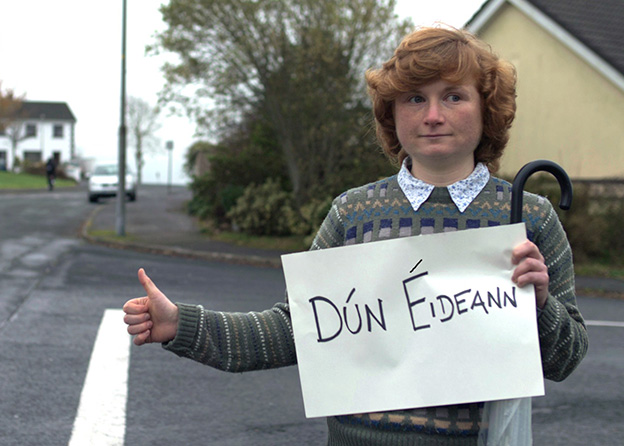
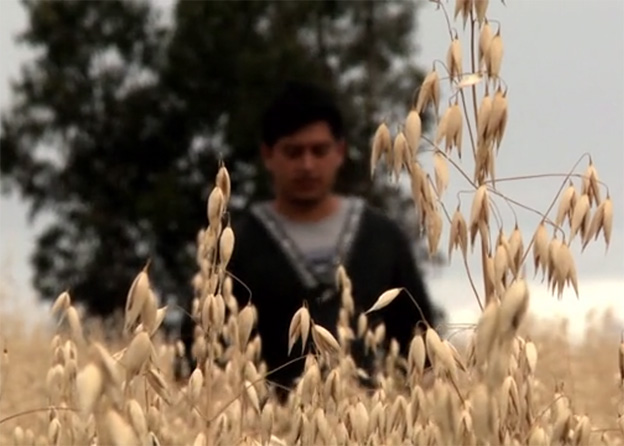
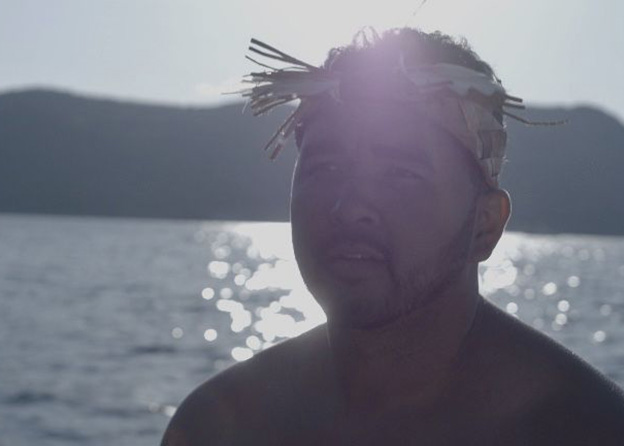
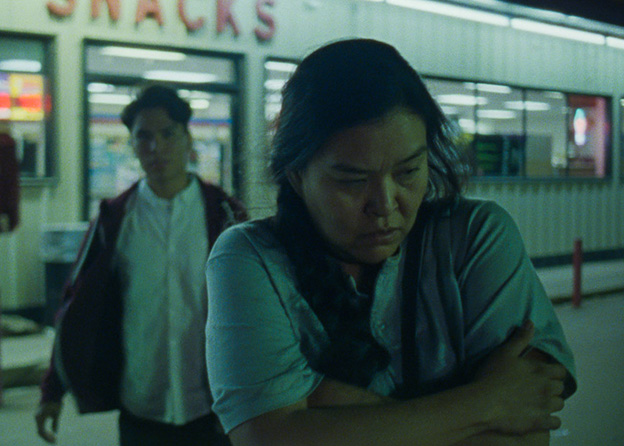
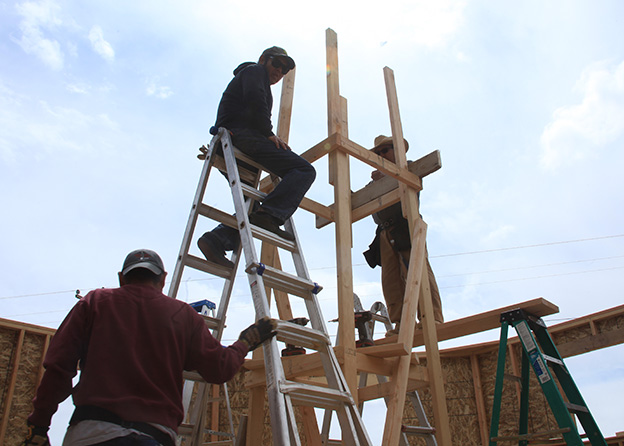
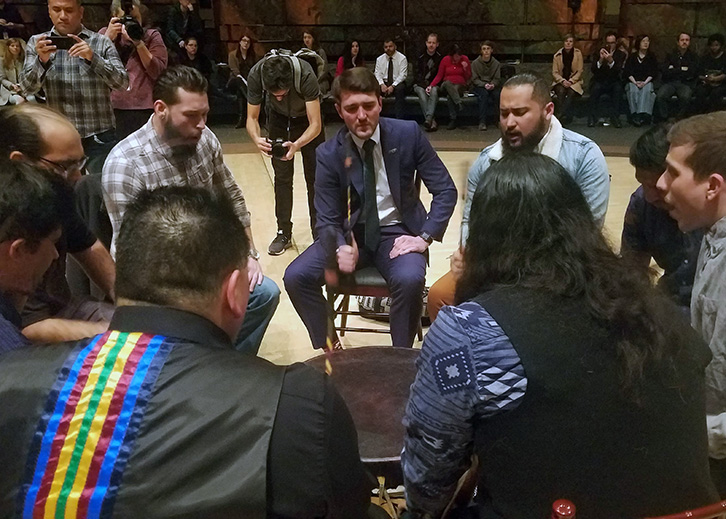
Thursday, February 20, at 6 pm
Potomac Atrium, National Museum of the American Indian
Celebrate the opening of the fifth annual Mother Tongue Film Festival with complimentary food and drinks, remarks from Smithsonian organizers, and a presentation by the Uptown Boyz, an intertribal powwow group based in Washington, DC.
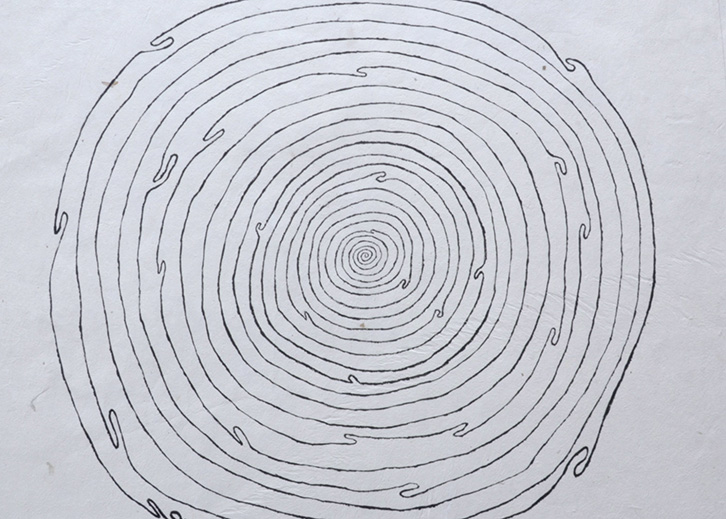
Friday, February 21, at 2:30 pm
Q?rius Theater, National Museum of Natural History
Following the Cinemática Indígena program on Friday afternoon, join us for roundtable discussion on the circulation of Indigenous media, language, and translation. Panelists include professor Charlotte Gleghorn and directors Raul Máximo Cortés, Marilen Llancaqueo, Jose Carlos Pons, and Marlon Eduardo Mutzumá Say, with moderator Mary S. Linn.
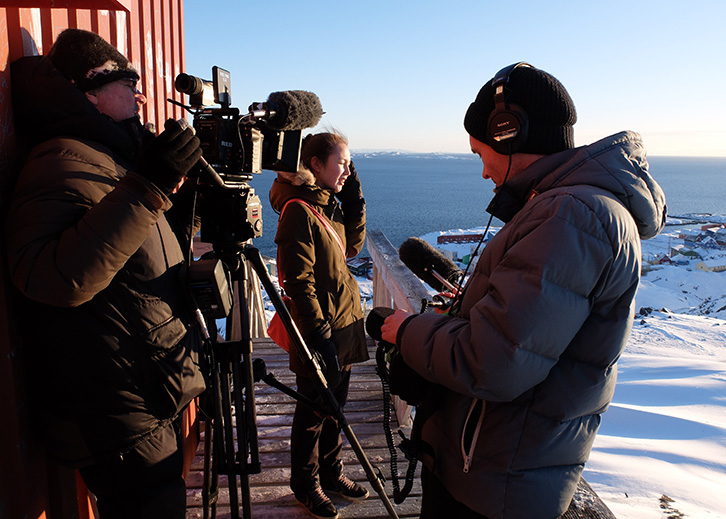
Friday, February 21, at 4 pm
Q?rius Theater, National Museum of Natural History
Preceding the Friday evening Sea of Islands program, directors Becs Arahanga, Jeff Barnaby, Marie-Helene Cousineau, Sidse Torstholm Larsen, and Naomi Mizoguchi will gather for a discussion moderated by Amalia Córdova.
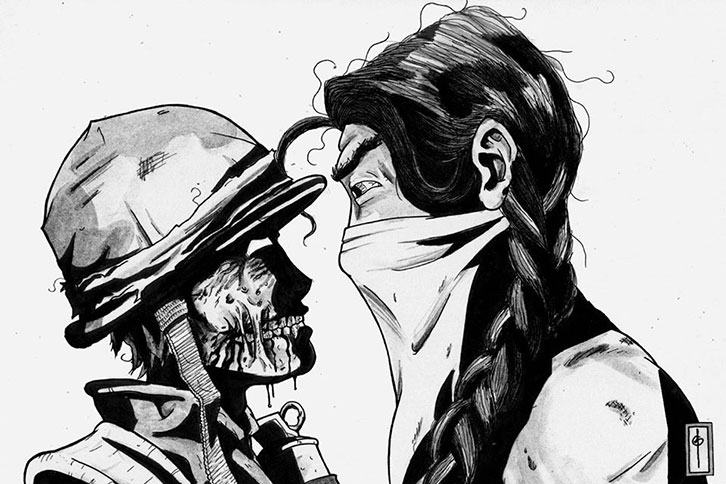
Saturday, February 22, at 7 pm
NYU Washington DC
Prior to the screening of Blood Quantum, we will host a reception in partnership with the Québec Government Office in Washington, DC, which is providing Québec beer for guests 21+. The event will be open to registered guests before opening up to the public on a first-come-first-serve basis.
The Mother Tongue Film Festival is a public program of Recovering Voices, a collaboration between Smithsonian’s National Museum of Natural History, the National Museum of the American Indian, and the Center for Folklife and Cultural Heritage.
Funding for the Mother Tongue Film Festival has been provided by Recovering Voices partners across the Smithsonian Institution: the National Museum of the American Indian, the National Museum of Natural History, and the Center for Folklife and Cultural Heritage. This program received federal support from the Smithsonian American Art Museum, and Q?rius, The Coralyn W. Whitney Science Education Center.
Additional support has been provided by the Embassy of Canada to the United States, the University of Edinburgh, New York University at Washington DC, the Québec Government Office in Washington DC, Eaton Workshop DC, the Georgetown University Department of Anthropology, The WEM Foundation & Betty and Whitney MacMillan, Ferring Pharmaceuticals, as well as anonymous donors.
We would like to extend a special thank you to the Uptown Boyz.
Marie-Helene Cousineau,
Madeline Ivalu (Inuk)
Canada
Inuktitut, English
2019
98 min.
Narrative Feature
Set at the end of World War II, Restless River follows a young Inuk woman as she comes to terms with motherhood after being assaulted by a soldier. Navigating the social norms of the colonizers and her own heritage, Elsa draws courage from her rugged land to become a woman as strong and independent as the river that cuts across it. Based on Gabrielle Roy’s 1970 short novel Windflower (La Riviere Sans Repos).
Disclaimer: This film contains a scene of sexual violence that some viewers may find disturbing.
John Marshall, Adrienne Miesmer
USA
English, !Xung (!Kung)
1980
59 min.
Documentary Feature
In 1978, N!ai was in her mid-thirties. In this intimate portrait, she tells her own story, and, in so doing, the story of Ju/’hoan life. As N!ai speaks, the film presents scenes from the 1950s that show her as a young girl and a wife. This classic ethnographic documentary portrays the great changes in Ju/’hoan society over thirty years, yet never loses sight of the protagonist.
Becs Arahanga, Amberley Jo Aumua, Matasila Freshwater, Dianna Fuemana, Mīria George, ‘Ofa-Ki-Levuka Guttenbeil-Likiliki, Marina Alofagia McCartney, Nicole Whippy
Āotearoa New Zealand, Fiji, Tonga, Solomon Islands, Kuki Airani (Cook Islands), Samoa, Niue
Fijian, Tongan, Roviana (Solomon Islands), Samoan, Cook Islands Māori, Niuean, English, Māori
2019
90 min.
Narrative Feature
Created by nine Pacific women directors, this portmanteau feature film was shot in seven different Pacific countries: Fiji, Tonga, Solomon Islands, Kuki Airani (Cook Islands), Samoa, Niue, and Āotearoa (New Zealand). In each of these nations, vai means water. The film represents a journey of empowerment through culture over the lifetime of one woman, Vai, played by a different Indigenous actress in each country.
Naomi Mizoguchi
Japan
Ainu, Japanese
2019
60 min.
Documentary Feature
Hokkaido, the northern island of Japan, was previously called Ainumosir, or “Land of the Ainu.” Over the years, the Ainu population has experienced a decline, with now fewer than 20,000 living in Hokkaido. Through the stories of four elders, this documentary sheds light on Ainu traditions, both past and present, and the efforts to keep the culture and language alive in Japan.
Sidse Torstholm Larsen, Strurla Pilskog
Greenland, Norway, Denmark
Greenlandic, English, Danish
2019
77 min.
Documentary Feature
When an American industrial giant decides to build their next plant in Maniitsoq, a remote town in Greenland, the billion-dollar project is welcomed with excitement. This could be an opportunity for a town in decline to turn things around, and even the first major step toward the long-awaited Greenlandic independence. But years go by without any signs of the plant, and Maniitsoq falls into a state of waiting. The future has been postponed, but for how long?
Jeff Barnaby (Mi’gmaq)
Canada
Mi’gmaq, English
2020
96 min.
Narrative Feature
The dead are coming back to life outside the isolated Mi’gmaq reserve of Red Crow, except for its Indigenous inhabitants who are strangely immune to the zombie plague. Traylor, the local tribal law enforcement, armed with nothing but a gun, a hangover, and a six-pack, must protect his son’s pregnant girlfriend, apocalyptic refugees, and the drunken reserve riff raff from the hordes of walking corpses infesting the streets of Red Crow.
Disclaimer: This film contains strong bloody violence and is not suitable for younger audiences. Unaccompanied minors will not be permitted to attend the screening.
Zacharias Kunuk (Inuk)
Canada
Inuktitut, English
2019
121 min.
Narrative Feature
In April 1961, the Cold War heats up in Berlin and nuclear bombers are deployed from bases in the Canadian Arctic. In Kapuivik, north Baffin Island, Noah Piugattuk’s nomadic Inuit band live and hunt by dog team as his ancestors did. When an agent of the Canadian government arrives, what appears as a chance meeting soon opens up the prospect of momentous change, revealing Inuit-settler relationships humorously and tragically lost in translation.
María Manzanares
Argentina
Mapuzungun
2016
3 min.
Music Video
Anahi Mariluan (Mapuche) stars in this music video filmed in southern Argentina, an ancestral Mapuche territory. Her lyrics are written almost exclusively in Mapuzugun, the Mapuche language. She uses Mapuche music, combining traditional instruments with contemporary influences. In addition to being a musician, Anahi describes herself as a translator of the sounds that surround us.
José Carlos Pons
Madagascar
Malagasy (Vezo Dialect)
2019
11 min.
Documentary Short
Felicia is one of the thousands of Malagasy fishermen and women on the Velondriake archipelago whose way of life is increasingly threatened by poverty and political marginalization. As an orphan and later as a mother, she turns to the sea as a means for sustenance, even when migration and commercial trawling threaten small-scale fishing operations. Like many other women in Madagascar, she embodies a steadfast willingness to keep moving forward in the face of major challenges.
Andrea Salazar, Lucía Pérez, Marilen Llancaqueo (Mapuche)
Chile
Mapuzungun, Spanish
2018
13 min.
Children’s Short
Kiñe Rupa (“Once Upon a Time”) is an innovative children’s web series that explores Mapuche forms of storytelling with Segundito and his Grandmother Paskuala, who live in the valleys of southern Wallmapu, the Mapuche ancestral territory. In “Treng Treng Kai Kai,” Segundito learns about the legendary creature that made it rain until the land was completely flooded and another who saved the community’s families from turning into fish.
Carol Cazares
Venezuela
Yanomami
2018
13 min.
Documentary Short
Sheroanawë Hakihiiwë (Yanomami) is a contemporary artist who uses his voice and visual art to tell stories about his people: the Yanomami of Pori Pori, on the upper Orinoco River of the Venezuelan Amazon. Since the 1990s, his work has centered around recovering the oral memory of his people, their worldview, and ancestral traditions. This short, abstract film explores his connection to his art and the creation stories of the Yanomami.
Eduardo Mutzumá Say (Ixil Maya), Colectivo Cine en la Calle
Guatemala
Ixil
2017
18 min.
Documentary Short
Pedro and Catarina survived the horrors of the civil war in Guatemala, but over thirty-five years of conflict and disappearances destroyed their families. Catarina reconnects with her sister years later, while Don Pedro continues to dream of reuniting with his son. These Ixil testimonies of war, and Pedro and Catarina’s efforts to honor and connect with disappeared loved ones, remind us of the particular toll of Indigenous lives lost to genocide.
Raúl Máximo Cortés (Purhépecha)
Mexico
Purhépecha, Spanish
2019
26 min.
Documentary Short
In 2010, the vibrant Indigenous musical tradition of the pirekua (traditional Purhépecha song), was declared Intangible Cultural Heritage by UNESCO. In Angahuan, Michoacán—for many the heartland of the tradition—a community mourns the loss of one of its great pirekua masters, Tata Jacinto Rita Toral. Through stories told by bandmates, friends, and family, we learn of his life and contributions as a pirériecha, a mediator, and vessel of Purhépecha culture.
Caitríona Ní Chadhain
Ireland
Gaeilge (Irish)
2019
15 min.
Documentary Short
In Gaeilge, grá and eagla mean “love” and “fear.” This short follows comedian Áine Gallagher as she prepares material for her bilingual stand-up comedy show, giving her an opportunity to explore why so many Irish people feel passionate about the Irish language but lack the confidence to speak it. As a learner herself, Áine gives us a fresh perspective to the insecurity that holds many people back from speaking their own native language.
Anthony Rauld
Chile
Spanish, English
2012
9 min.
Documentary Short
Chris Culbertson, also known as Carlos Catrileo, is a young American who, upon discovering that he is Mapuche, goes back to find his roots in southern Chile. This documentary short is part of the Encoded Textiles project by Los Angeles-based artist Guillermo Bert.
Chad Charlie
Canada, USA
Nuu-chah-nulth
2019
9 min.
Narrative Short
A young chief, Uu?uu~tah, is entrusted to be the whale hunter of his village. In order to undertake such a task, his grandmother leads him along the long, hard path of his rite of purification and growth.
Shaandiin Tome (Diné)
USA Diné Bikéyah (Diné Territory)
Diné (Navajo), English
2017
10 min.
Narrative Short
Ruby lives in Window Rock, Arizona, with her son, Joseph. In order to hide her alcoholism, she chooses to suffer rather than seek help. One day, she finds her secret is at risk.
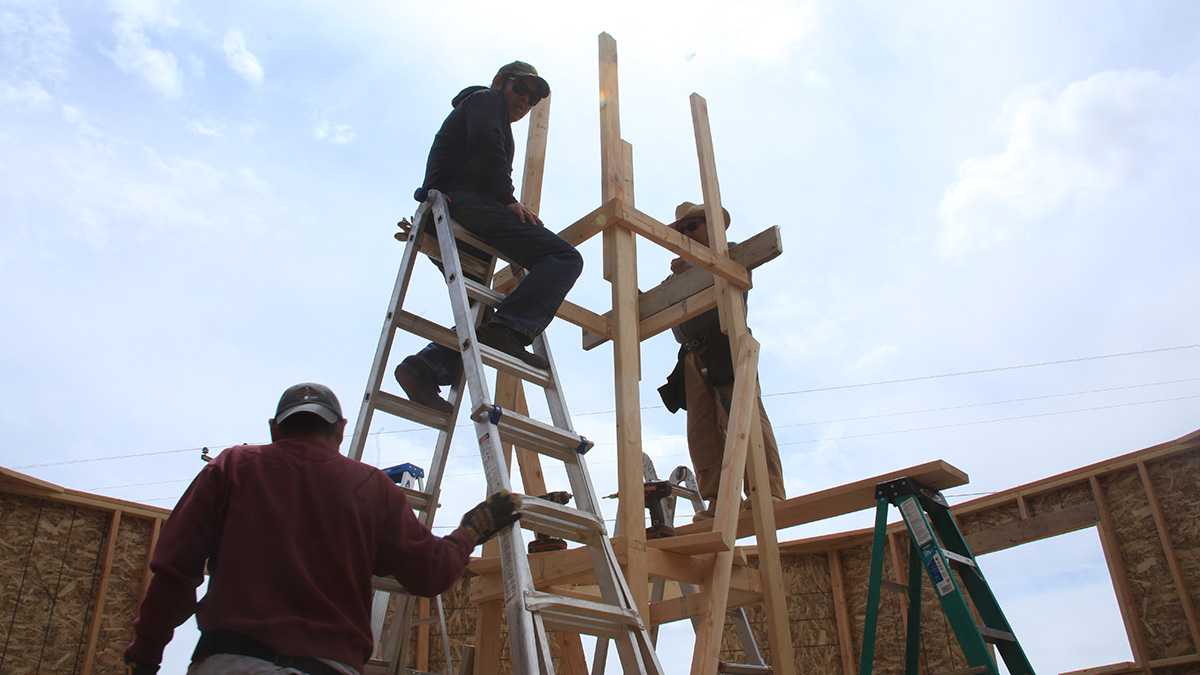
Blackhorse Lowe (Diné)
USA Diné Bikéyah (Diné Territory)
Diné (Navajo), English
2018
11 min.
Documentary Short
Larry and Carmelita Lowe tell their family history over the process of building a hooghan, a traditional Navajo dwelling.
Sam Gebremiche
USA, Eritrea
Tigrinya
2019
6 min.
Narrative Short
Each morning, a group of children wake up and go to collect a valuable cactus fruit called beles from deep in the mountains near their village. The short is based in part on the childhood memories of director Sam Gebremiche, who grew up in Eritrea before his family moved to the United States.
Shane McSauby (Anishinaabe)
USA
Anishinaabe, English
2017
10 min.
Narrative Short
Jim Asiginaak, a transgender Anishinaabe man, has lost all connection to his Native culture until he has a chance meeting with a mysterious Anishinaabe woman, Bangishimogikwe.
ADN Maya Films with Jaime Magaña (Yucatec Maya)
Mexico
Spanish, Yucatec Mayan
2019
3 min.
Music Video
In this music video, Jesús Pat Chablé aka Pat Boy raps in his mother tongue of Yucatec Mayan, carrying a message of Indigenous pride. Pat Boy is part of ADN Maya, a collective of artists from the Yucatec Peninsula who all sing in Maya.
Lena Herzog
Sound design and compositions by Marco Capalbo and Mark Mangini
United States
Ahom, Ainu, Ayoreo, Bathari, Central Balsas Nahuatal, Chamacoco (Ishir Ibitoso), Dalabon, Duoxu, Enxlet Norte, Great Andamanese, Ikaan, Ingrian, Ixcatec, Ju|'hoan, Kotiria (Wanano), Koyukon, Laklãnõ Xokleng, Light Warlpiri, Los Capomos Mayo,Mani Manx, Mbya Guarani, N|ng, Nafsan (South Efate), Nivkh, Olekha, Ongota, Paunaka, Pite Saami, Qaqet, Sadu, Selk'nam (Ona), Selkup, Sumtu (Sone Tu), Surel, Tehuelche, Trung (Dulong), Warlpiri, Yanesha, Yauyos Quechua, Yoloxóchitl Mixtec
2016
46 min. (VR: 7 min.)
Video and Sound Installation
In Lena Herzog’s oratorio, image and sound are poetically linked through 3D animation, drone video footage, and still images in black and white. Composed of historical linguistic recordings punctuated by the sound of collapsing stars, Last Whispers is a chorus of extinct and endangered languages, both spoken and sung. Following the oratorio, visitors can experience a short virtual reality projection.
This U.S. premiere is pesented in partnership with the John F. Kennedy Center for the Performing Arts as part of the Millennium Stage program series in the Terrace Theater.